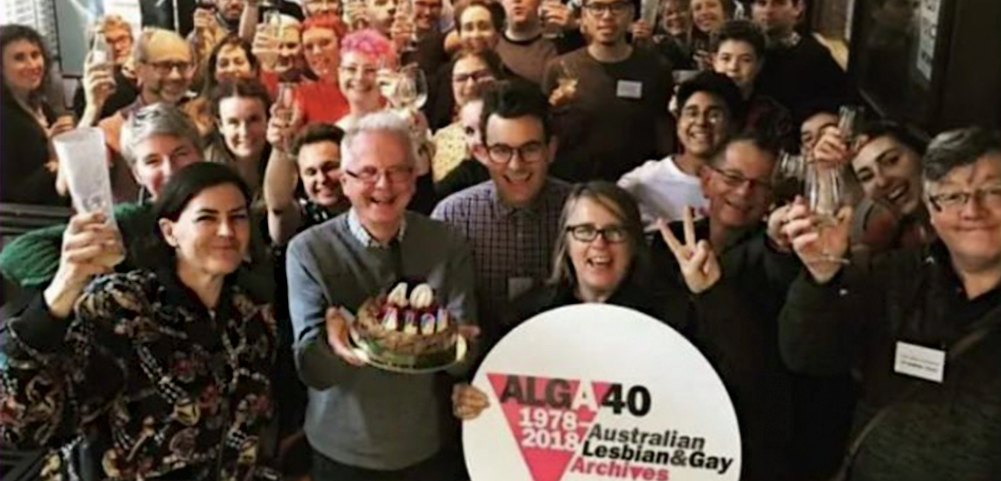
Got Some LGBT History To Share? The Australian Queer Archives Wanna Hear It

Do you have community stories, queer memories and Aussie LGBTQI+ history you want to share? The Australian Queer Archives want to hear all about it!
Artists, writers, historians and scholars are encouraged to apply for an incredible opportunity to present and preserve moments of queer history for future generations.
Australian Queer Archives (AQuA) is offering the chance to present your stories, memories and histories at the 2024 Australian Queer Histories Conference (AQHC).
After smaller events in previous years due to COVID, this year’s conference will be back in full force to celebrate the rich, diverse tapestry of Australian LGBTIQ+ histories through papers, panels, posters and much more.
Papers, Ephemera And Stories – Oh My!
AQuA are currently seeking proposals from all different areas of the LGBTQI+ community. From local community historians, to academics and emerging scholars, to creative thinkers – anyone whose work relates to Australian LGBTIQ+ histories.
“We are seeking proposals relating to any aspect of Australian LGBTIQ+ histories,” says the AQuA. “Offers are welcome from academics, emerging scholars, community historians and creative practitioners involved with LGBTIQ+ histories. These may be in the form of papers, panels, posters, or other non-traditional formats.
“We endorse and aim to reflect the Archives’ commitment to diversity which seeks to celebrate the racial, ethnic, class, cultural, political and locational and the national distribution and international significance of Australia’s diverse sexuality, sex and gender communities.”
If that’s you, you can submit a proposal by 1 July, 2024.
LGBT Australians “hungry to learn” about our community’s history
Increased representation of the LGBTQI+ community in the media, as well as increased acceptance and key moments in history such as the passing of same-sex marriage, has led to an increased awareness of our community’s public and private stories.
And yet, AQuA spokesperson Nick Henderson says that “Australian LGBTIQ+ communities are [still] hungry to learn more.”
“This is an exciting time for Australian LGBTIQ+ histories, with an increasing number of institutions, broadcasters and creatives producing content engaging with our histories,” says Henderson.
“However, there is still so much of Australian LGBTIQ+ history that hasn’t been uncovered or researched – histories that are just waiting to be told.”
Australian Queer Histories Conference: 25 years of preserving and sharing Aussie LGBT history
The AQHC first began in 1998 as the ‘Australian Homosexual Histories’, which was a part of AQuA’s 20th Anniversary celebrations. (AQuA began in 1978 – the same year as the Mardi Gras riots, and one year before Star Observer was born.)
Papers at that very first symposium covered the legacy of gay liberation, nineteenth-century passing women, the Uniting Church, the history of Mardi Gras, PFLAG, AIDS, lesbian feminist activism, media panics, the Australian pop charts, homosexual law reform and more. Australia’s young up-and-coming queer historians, academics and writers presented these stories, many of whom have since gone on to long and celebrated careers.
Henderson told Star Observer that the conference has been “a vital platform for both academic and community historians to share their research and network”.
On AQuA’s website you’ll find a selection of past conferences and papers, which provide a fascinating timeline of changing attitudes, interests and approaches in scholarship and thinking over the last 25 years.
To put forward your story, paper or presentation idea for the 2024 Australian Queer Histories Conference, submit a proposal of no more than 150 words to [email protected] by July 1.
The 2024 Australian Queer Histories Conference will be held on September 20 and 21 at the Victorian Pride Centre, the home of the Australian Queer Archives. For more information, visit the AQuA website here.









